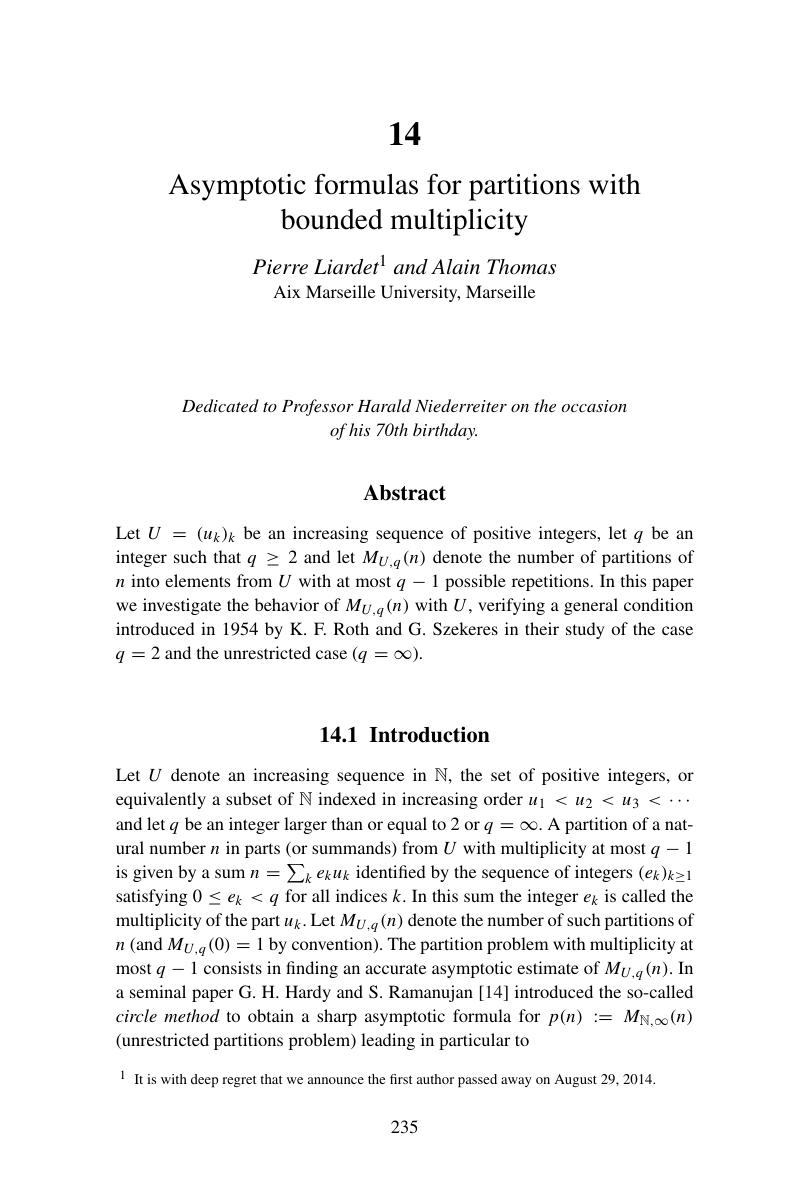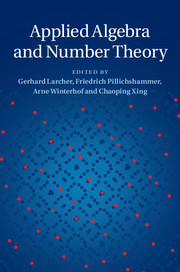Book contents
- Frontmatter
- Contents
- Preface
- 1 Some highlights of Harald Niederreiter's work
- 2 Partially bent functions and their properties
- 3 Applications of geometric discrepancy in numerical analysis and statistics
- 4 Discrepancy bounds for low-dimensional point sets
- 5 On the linear complexity and lattice test of nonlinear pseudorandom number generators
- 6 A heuristic formula estimating the keystream length for the general combination generator with respect to a correlation attack
- 7 Point sets of minimal energy
- 8 The cross-correlation measure for families of binary sequences
- 9 On an important family of inequalities of Niederreiter involving exponential sums
- 10 Controlling the shape of generating matrices in global function field constructions of digital sequences
- 11 Periodic structure of the exponential pseudorandom number generator
- 12 Construction of a rank-1 lattice sequence based on primitive polynomials
- 13 A quasi-Monte Carlo method for the coagulation equation
- 14 Asymptotic formulas for partitions with bounded multiplicity
- 15 A trigonometric approach for Chebyshev polynomials over finite fields
- 16 Index bounds for value sets of polynomials over finite fields
- 17 Rational points of the curve over
- 18 On the linear complexity of multisequences, bijections between ℤahlen and ℕumber tuples, and partitions
- Plate section
- References
14 - Asymptotic formulas for partitions with bounded multiplicity
Published online by Cambridge University Press: 18 December 2014
- Frontmatter
- Contents
- Preface
- 1 Some highlights of Harald Niederreiter's work
- 2 Partially bent functions and their properties
- 3 Applications of geometric discrepancy in numerical analysis and statistics
- 4 Discrepancy bounds for low-dimensional point sets
- 5 On the linear complexity and lattice test of nonlinear pseudorandom number generators
- 6 A heuristic formula estimating the keystream length for the general combination generator with respect to a correlation attack
- 7 Point sets of minimal energy
- 8 The cross-correlation measure for families of binary sequences
- 9 On an important family of inequalities of Niederreiter involving exponential sums
- 10 Controlling the shape of generating matrices in global function field constructions of digital sequences
- 11 Periodic structure of the exponential pseudorandom number generator
- 12 Construction of a rank-1 lattice sequence based on primitive polynomials
- 13 A quasi-Monte Carlo method for the coagulation equation
- 14 Asymptotic formulas for partitions with bounded multiplicity
- 15 A trigonometric approach for Chebyshev polynomials over finite fields
- 16 Index bounds for value sets of polynomials over finite fields
- 17 Rational points of the curve over
- 18 On the linear complexity of multisequences, bijections between ℤahlen and ℕumber tuples, and partitions
- Plate section
- References
Summary

- Type
- Chapter
- Information
- Applied Algebra and Number Theory , pp. 235 - 254Publisher: Cambridge University PressPrint publication year: 2014
References
- 2
- Cited by



